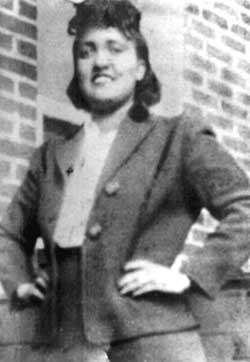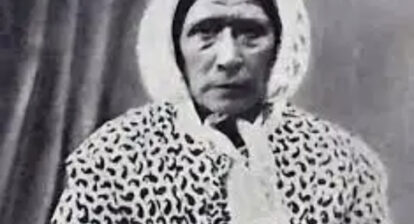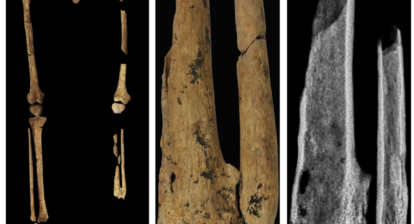Henrietta Lacks was an African American woman whose cancer cells are the source of the HeLa cell line, the first immortalized human cell line (cells that keep repdoducing by division) and one of the most important cell lines in medical research. Unlike other cells, Henrietta’s cells were able to survive, divide and grow indefinitely, an extremely valuable quality in medical research. Because of this quality, her cervical cancer tumor was biopsied without her knowledge at John Hopkins Hospital in 1951 and the cells were then cultured by George Otto Gey who created the cell line known as HeLa, which is still used for medical research today.
HeLa cells were the first human cell line to be established and have been widely used in health and medicine research, especially those on viruses, cancer, and human genetics. Her family did not know of her cell line being used for research till 1975.

HeLa Cell Culture. Cancer Cells of Henrietta Lacks. Public Domain
Henrietta died on October 4, 1951. She had gone to John Hopkins (one of the only hospitals that treated Black patients from lower socioeconomic backgrounds) for a routine treatment session and was admitted due to severe abdominal pain. An autopsy revealed that the cancer had mastastasized throughout her entire body. She was buries in an unmarked grave in her family’s cemetary in Lackstown (Clover) in Halifax Country, Virginia.
On October 13, 2021, the World Health Organisation (WHO) presented a special posthumous award to Henrietta Lacks’ family, acknowledging her legacy and her world-changing contribution to medical science. Johns Hopkins University also set up a memorial award and a university building in her name.
[Update] In August 2023,the Lacks family reached a settlement with Thermo Fisher Scientific, the biotech company that used and profited from her “HeLa” cells.







